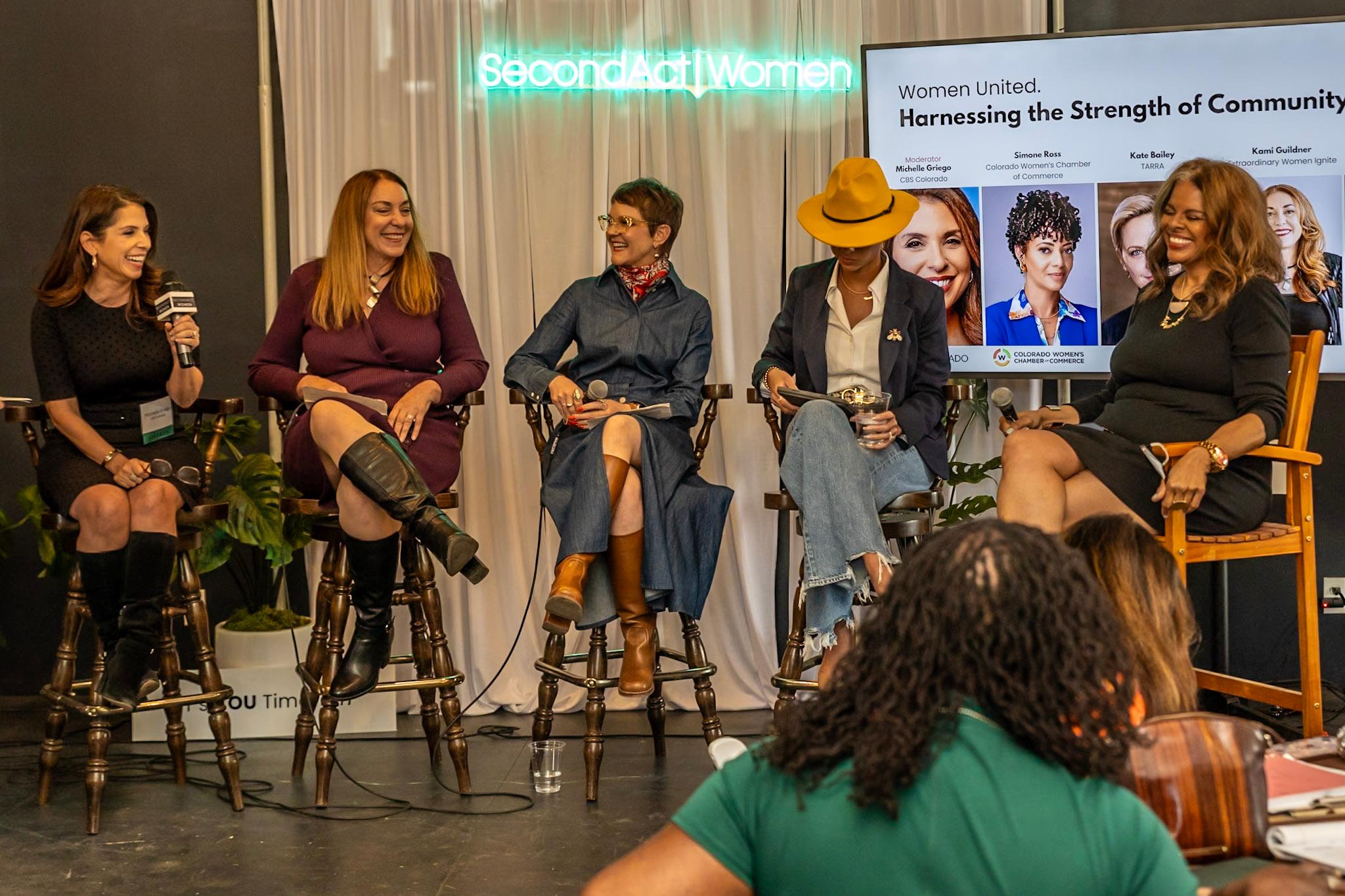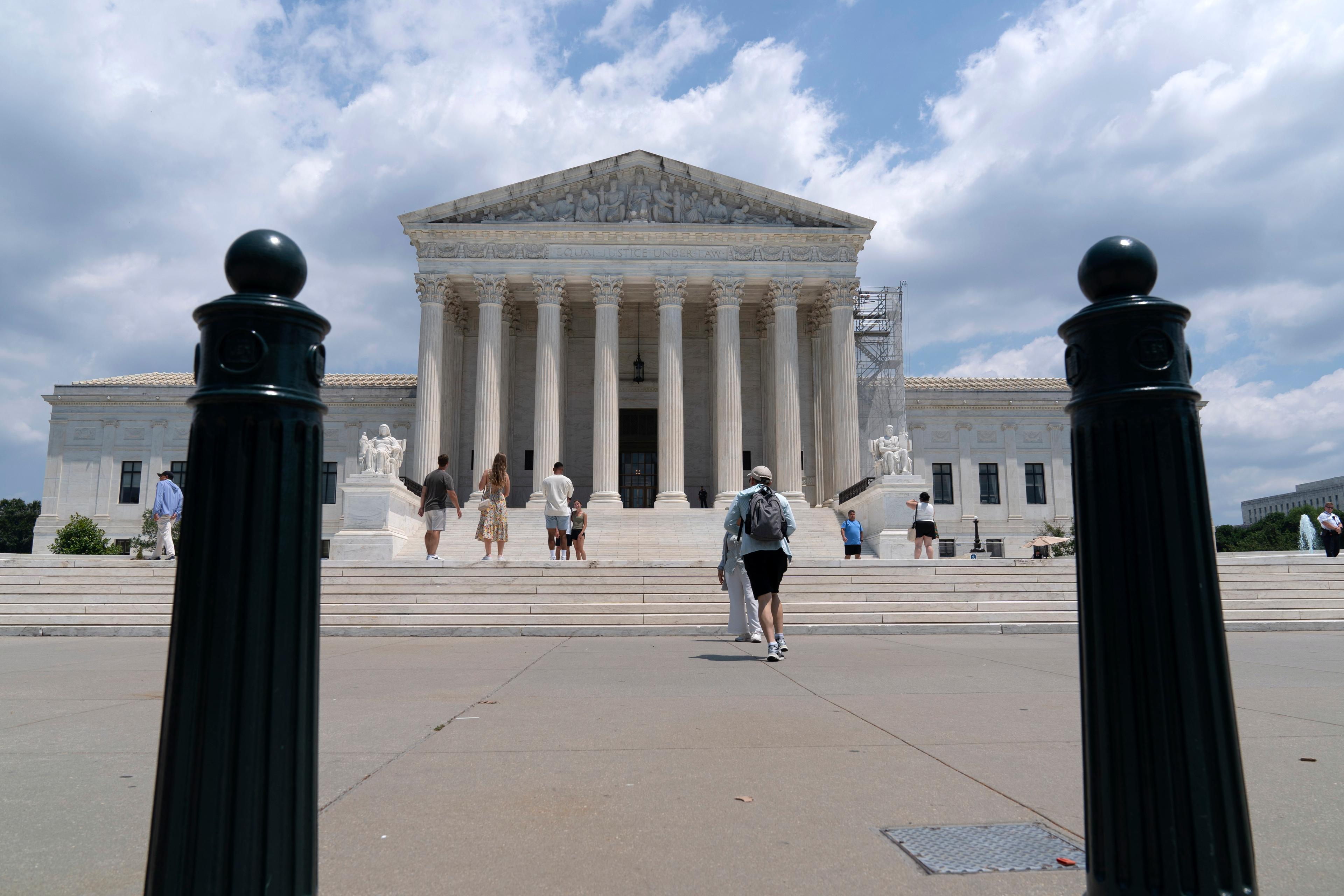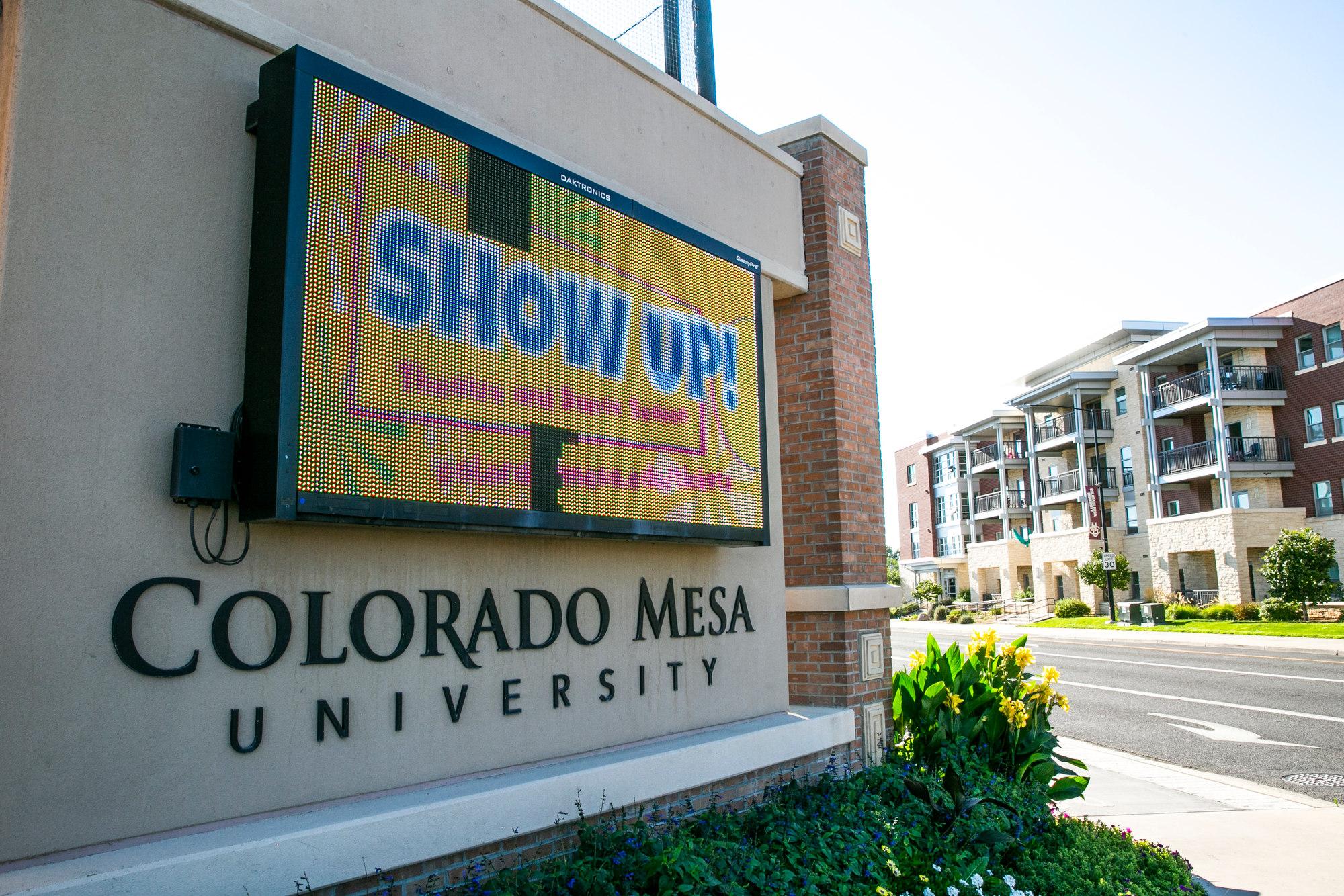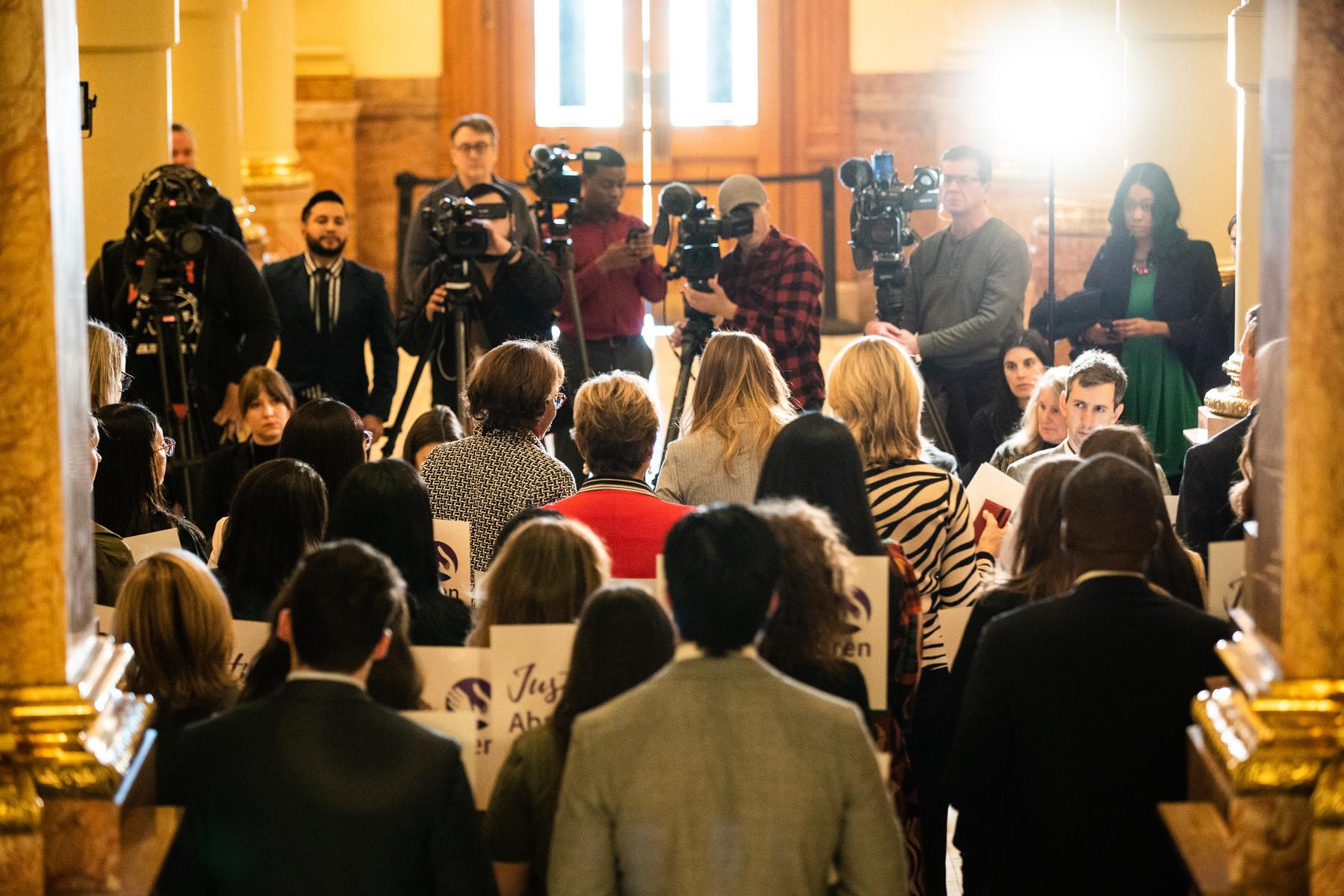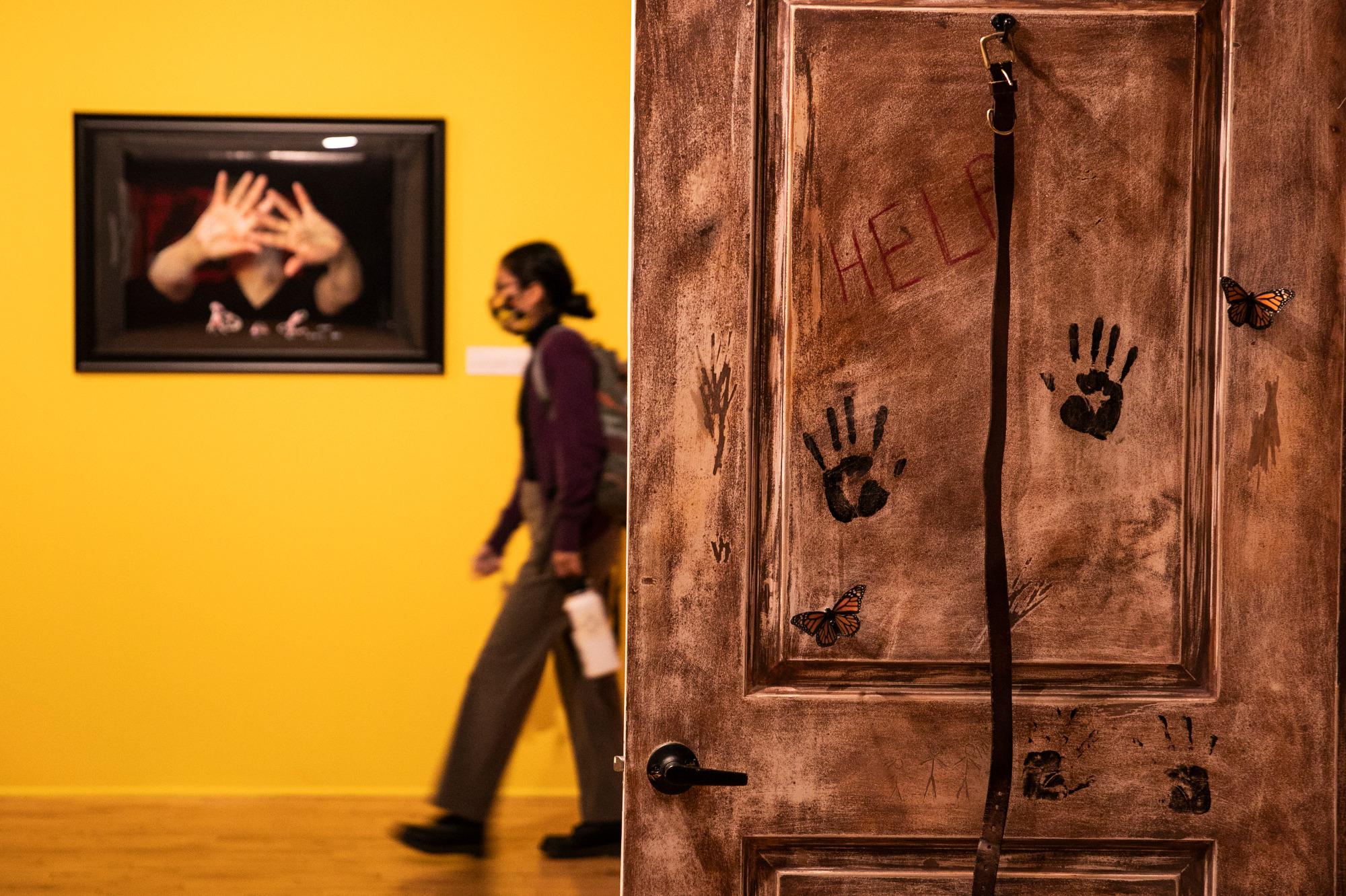
It’s a topic that affects countless lives, yet is often overlooked until it can no longer be ignored. In the week that the Museo de las Americas in Denver opened their exhibit exploring domestic violence, the topic once again made headlines after a shooting in Colorado Springs killed six. Latina Safehouse, one of the partners of the Somos exhibit, estimates that one in three Latinas will experience domestic violence in their lifetimes.
It’s an epidemic that affects countless communities across Colorado, and one that worsened during the pandemic. Last year, the Denver Post reported that Denver Police saw a 46 percent rise in the number of nonfatal assaults connected to domestic violence in the first nine months of 2020 compared to the same period over the past three years. There were similar upward trends in Boulder and Aurora.
It was Latina Safehouse Executive Director Angela Ceseña who approached Museo’s Executive Director Claudia Moran with the idea of putting on an exhibit. Before the pandemic’s added strain, Ceseña told Moran the crisis was getting worse and that the Safehouse was running out of space and resources to help survivors. Moran said she wanted to help, “I say, ‘Well, what we can do? How we can support you in this?’”
The answer came from a group of survivors known as Las Comadres. It’s a group that supports each other and shares their stories of survival. Then exhibit curator Carina Bañuelos-Harrison joined the team. As the founder of artist collaborative Art and Color, she brought connections in the art community to find artists who would be interested in this new project. Moran’s original idea for a pop-up show soon grew to a full-sized exhibition.
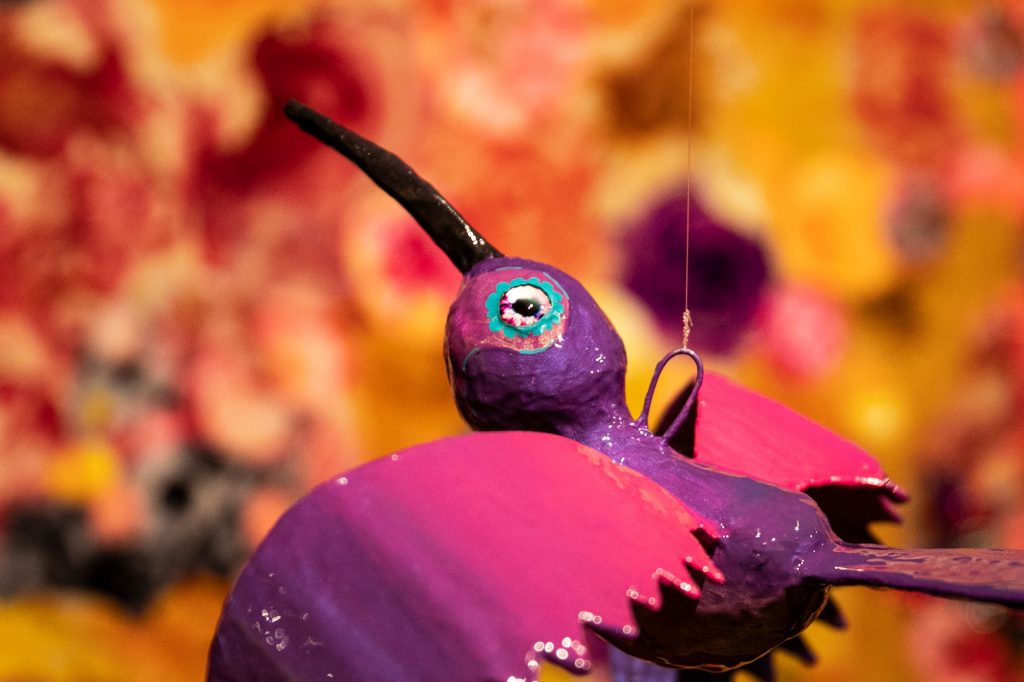
“We put an artist call out,” said Bañuelos-Harrison. “We also included a few questions along with your regular questions about if you have a website, what type of art do you create? What kind of mediums do you work in? We also asked questions surrounding domestic violence.”
From the entries, Bañuelos-Harrison then selected artists with thoughtful statements, different backgrounds and who worked in different artistic media. She then paired up each artist with a different Comadre over Zoom meetings so the artists could hear their stories and work on interpreting them through their artistic vision. The Museo continued to work with Latina Safehouse to provide staff, volunteers and participating artists with extra training on how to talk about the topic with survivors and visitors.
The resulting exhibit, Somos: On Domestic Violence, Resilience and Healing, is a series of paintings, illustrations, photographs, mixed media and three-dimensional art. The Comadres’ names are left off for privacy reasons, but their stories share intimate moments of hope, sadness, fear and healing. The art fills the colorful main gallery spaces of the Museo. The works range from a creative interpretation of the warning signs of abuse as illustrated on a dress to a series of colorful graphics illustrating scenes from a Comadre’s story. Down the hall is a lotería-inspired illustration of another Comadre’s story. Around the corner are a set of photographs interpreting the experience of domestic violence.
Javier Flores was one of the artists selected to work with a Comadre to illustrate her story. He said he connected with the exhibit’s theme on a personal level.
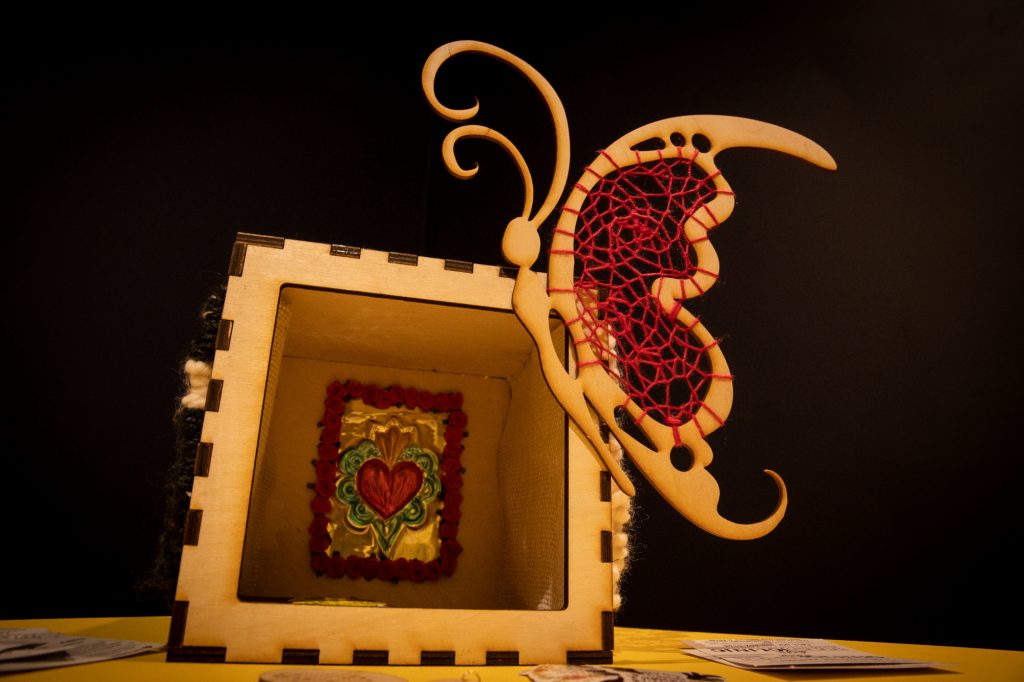
“I guess like my upbringing having witnessed domestic violence as a child and also the different forms of it, physical, emotional, psychological, all the traumas,” Flores said. “For me, it was like a no-brainer to be able to use my art towards that kind of advocacy.”
Some of the artworks take on aspects of the comadres’ stories literally. Others like Flores’ painting are more figurative. It’s a portrait with a dark background, but the Comadre’s face is smiling and full of light. Her son sits in front of her but not literally. He is a symbol for what makes her happy.
“My piece is a portrait of la comadre that I was paired up with and her son and I just posed for her son a little bit smaller, but within like where her heart is,” Flores said. “One of the things she had talked to me about was her son and how that was a major influence of her getting out of that situation.”
But working with someone during a pandemic brought challenges. After the initial Zoom meeting, Flores figured out a better way to stay in touch with his Comadre.
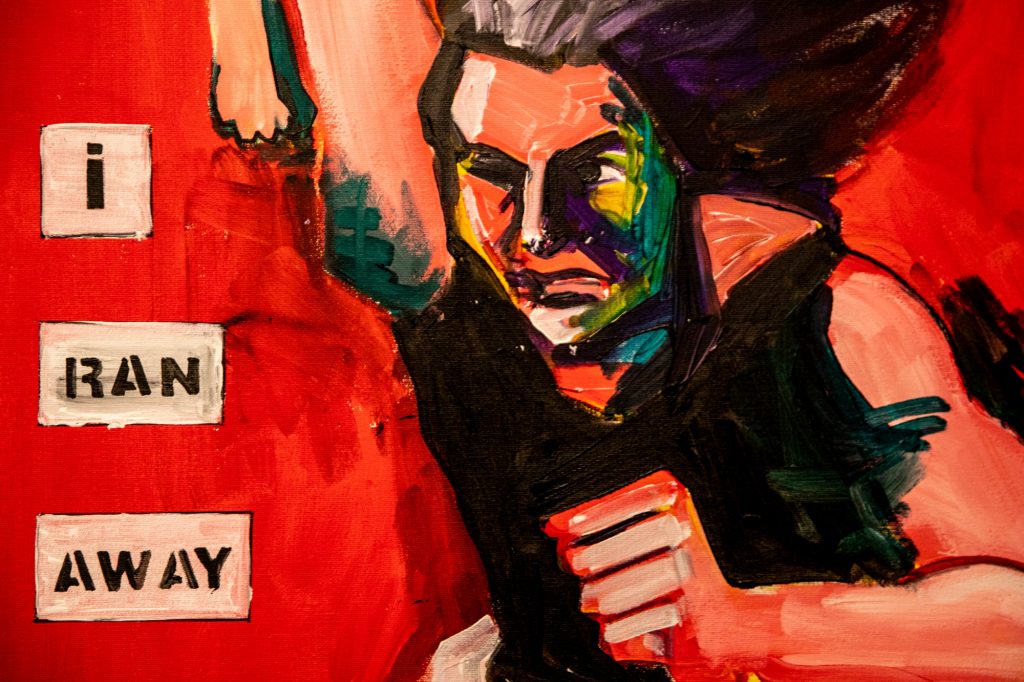
“It was texts back and forth because that worked a little bit better for both of our schedules,” he said. “Chatting about the aesthetics, showing her some progress photos and then just getting feedback and honestly, just being an ear to listen.”
Flores said the pair have since become friends. Enough so that she felt comfortable sharing her thoughts on the finished painting. “She was really excited,” he said. “She said that I did really well with the portraits, and it definitely looks like her son.” Flores joked that she requested he change her son’s hair style in the painting since he recently had it cut, but that was already after the painting was finished.
Museo director Claudia Moran says the exhibit — and the discussion it has already inspired — has moved her. She says she hopes it will inspire others into conversation and action.
“They really experience the environment and they really get a feeling of sincerity and also resilience,” she said.
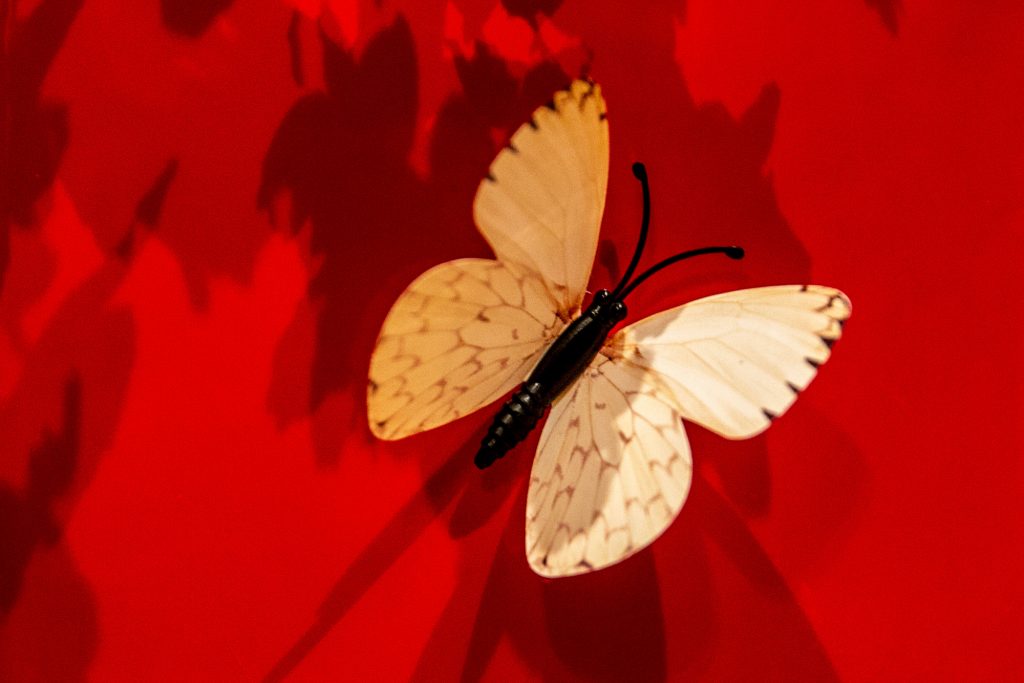
To Flores, the finished work symbolizes a reclaiming of self-worth: “Just hearing her story really reiterated to me that a big part of her abuse was being told she wasn't worth anything,” he said. “Throughout time, only the rich and the wealthy — the famous — get their images depicted in artistic forms like this. So for me, it was like, no, you're right there with them, you're just as important as everybody else.”
Somos is open now at the Museo de las Americas through Aug. 21. On every first Friday of the month during the exhibit’s run, there will be panel discussions related to the exhibit tackling issues like domestic violence in the LGBTQ community and finding healing in music and dance. If you are experiencing domestic violence, there is help. Visit the National Domestic Violence Hotline website or call 1-800-799-7233.

